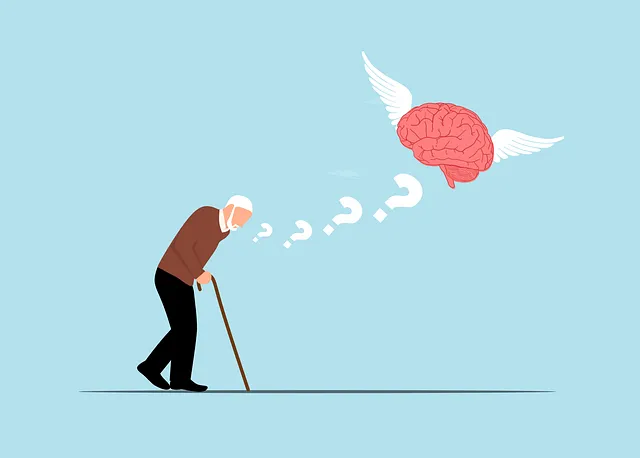The text highlights the significant impact of stigma on individuals with mental illness, hindering their quest for help and often leading to detrimental emotional consequences. It emphasizes the crucial role of organizations like Arvada Kaiser Permanente in breaking down this barrier through comprehensive programs, safe therapy spaces, and educational initiatives. By integrating mental health services, advocating for policy changes, and fostering community engagement, they promote early intervention, reduce stigma, and empower individuals to seek judgment-free care, as exemplified by their innovative Compassion Cultivation program and accessible mental health number.
Mental illness stigma remains a significant barrier to individuals seeking help, often leading to delayed treatment and worse outcomes. This article explores targeted efforts to reduce this pervasive issue, highlighting successful initiatives like Arvada Kaiser Permanente’s innovative approach to mental health care. We delve into key strategies such as education and awareness campaigns, policy reforms, and community engagement, examining their role in fostering a more supportive environment for those dealing with mental health challenges. By learning from successful models like Arvada Kaiser Permanente, we can significantly improve access to quality mental health services.
- Understanding Stigma: Its Impact on Mental Health Seekers
- Arvada Kaiser Permanente: A Model for Change
- Education and Awareness: Key Strategies to Reduce Stigma
- Policy and Systemic Reforms: Ensuring Inclusive Support
- Community Engagement: Building a Network of Support
Understanding Stigma: Its Impact on Mental Health Seekers

Stigma surrounding mental illness can have a profound impact on individuals seeking help and their overall well-being. It often acts as a barrier, leading many to suffer in silence or avoid reaching out for support altogether. This pervasive stigma can stem from societal misconceptions, fear of the unknown, and lack of understanding about mental health conditions. When left unaddressed, it can result in severe consequences for those struggling with their emotional healing processes.
The impact is especially notable when considering the number of people affected by mental health issues. According to Arvada Kaiser Permanente’s resources, an increasing trend in mental health concerns requires a shift in societal perspective. Enhancing Mental Health Awareness and fostering an environment that promotes coping skills development are vital steps towards reducing stigma. By breaking down these barriers, we can encourage more individuals to access the support they need, ultimately improving their journey towards recovery.
Arvada Kaiser Permanente: A Model for Change

Arvada Kaiser Permanente stands out as a beacon of progress in mental health support, offering comprehensive services that challenge societal norms and reduce stigma. Their dedicated team provides a safe space for individuals to access therapy, counseling, and support groups, fostering an environment where conversations about mental illness are normalized. Through innovative programs tailored to diverse needs, they’re making significant strides in Depression Prevention.
By integrating evidence-based practices like Compassion Cultivation, these initiatives not only address symptoms but also promote positive thinking and resilience. The organization’s commitment to accessibility and acceptance serves as a model for other healthcare providers, ultimately contributing to a more inclusive and supportive mental health landscape. Their approach ensures that individuals experiencing various challenges receive the care they need without fear of judgment or discrimination.
Education and Awareness: Key Strategies to Reduce Stigma

Education and awareness play a pivotal role in dismantling the stigma surrounding mental illness. By integrating mental health into mainstream conversations, Arvada Kaiser Permanente’s efforts to promote open dialogue are invaluable. This can be achieved through various initiatives like community workshops, school programs, and media campaigns that dispel myths and present accurate information about mental health conditions. Educating individuals on symptoms, treatment options, and available resources empowers them to recognize signs in themselves or others and seek help without fear of judgment.
The power of education extends beyond individual awareness; it fosters a supportive environment. Encouraging open discussions in schools, workplaces, and social settings normalizes conversations about mental health, reducing the isolation often experienced by those struggling. Moreover, integrating Mindfulness Meditation and Mind Over Matter principles into educational curricula can teach coping strategies, promoting resilience and early intervention. A comprehensive Mental Health Policy Analysis and Advocacy is also crucial to ensuring these awareness efforts are coupled with systemic changes that prioritize mental well-being on a larger scale.
Policy and Systemic Reforms: Ensuring Inclusive Support

In efforts to reduce stigma surrounding mental illness, policy and systemic reforms play a pivotal role in fostering inclusive support. Organizations like Arvada Kaiser Permanente are at the forefront of this movement, advocating for comprehensive mental health services that are easily accessible to all. By integrating mental health into primary care systems, these initiatives ensure that individuals receive holistic care without fear of judgment or discrimination. This shift not only promotes early intervention but also encourages ongoing management, empowering individuals to actively participate in their well-being.
Policy analysis and advocacy are essential components of this reform. Through rigorous Mental Health Policy Analysis and Advocacy, stakeholders can identify gaps in existing systems and propose evidence-based solutions. Conflict resolution techniques, when applied in healthcare settings, can facilitate productive conversations between patients, providers, and support staff, enhancing communication and understanding. Ultimately, these collective efforts aim to create a supportive environment where individuals with mental health challenges are treated with dignity and respect, reducing the stigma that has long perpetuated misunderstanding and isolation.
Community Engagement: Building a Network of Support

Community engagement is a powerful tool in the fight against mental illness stigma. By building a network of support within local communities, such as Arvada Kaiser Permanente mental health services can connect individuals struggling with their mental wellness to resources and understanding. This involves fostering partnerships between healthcare providers, community organizations, schools, faith groups, and businesses to create a culture of care and acceptance.
One effective strategy is the production of a Mental Wellness Podcast Series that addresses common concerns, shares resilience-building stories, and promotes cultural sensitivity in mental healthcare practice. These platforms provide an accessible way to educate and engage residents, normalizing conversations about mental health. Through community outreach programs and educational workshops, individuals can gain knowledge about various mental health conditions, learn coping mechanisms, and discover supportive services available, ultimately reducing the social isolation often associated with mental illness.
Stigma reduction efforts, as exemplified by initiatives like those at Arvada Kaiser Permanente, play a pivotal role in fostering inclusive support for mental health. By combining education, policy reforms, and community engagement, we can significantly enhance access to care. As the arvada kaiser permanente mental health number attests, such strategies are crucial in ensuring that everyone, regardless of their background, receives the supportive environment they need for optimal mental well-being. Through continued efforts, we can create a society where mental illness is met with understanding and compassion rather than isolation and judgment.



